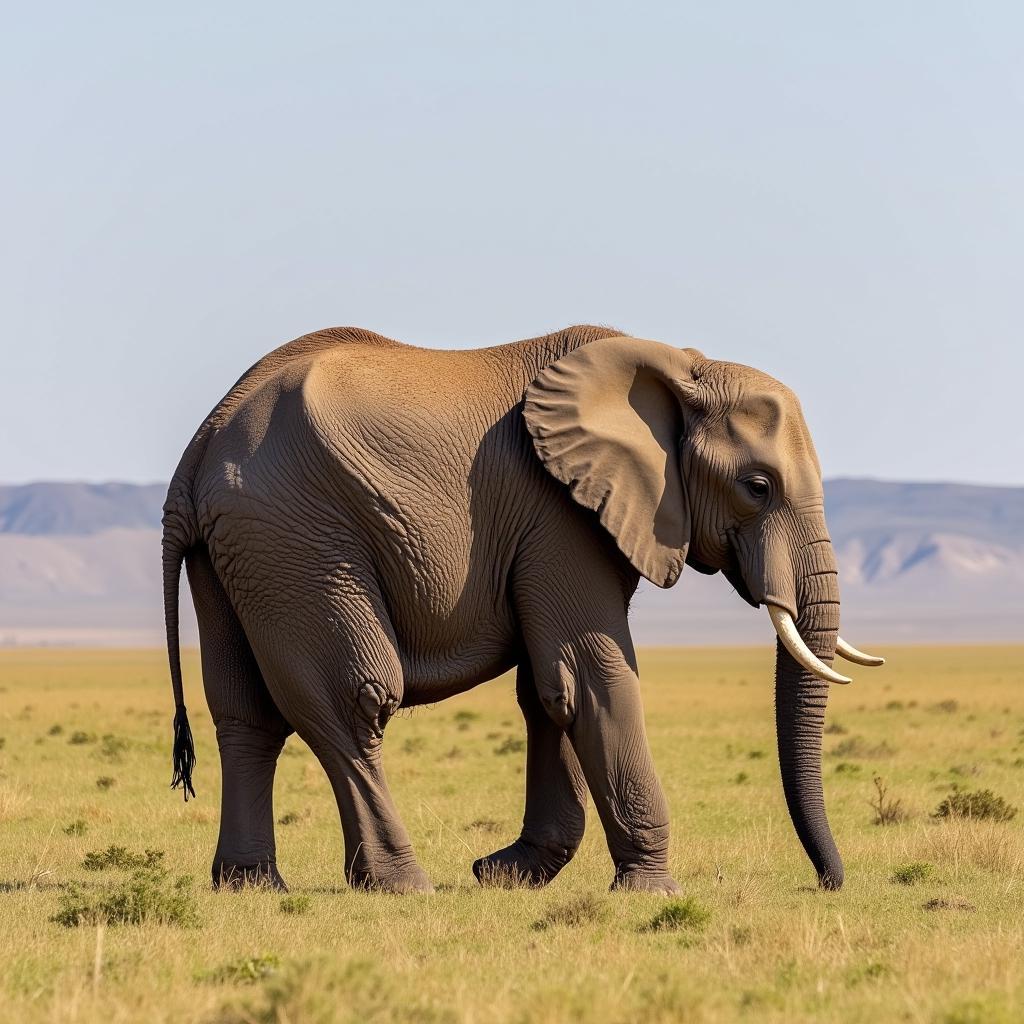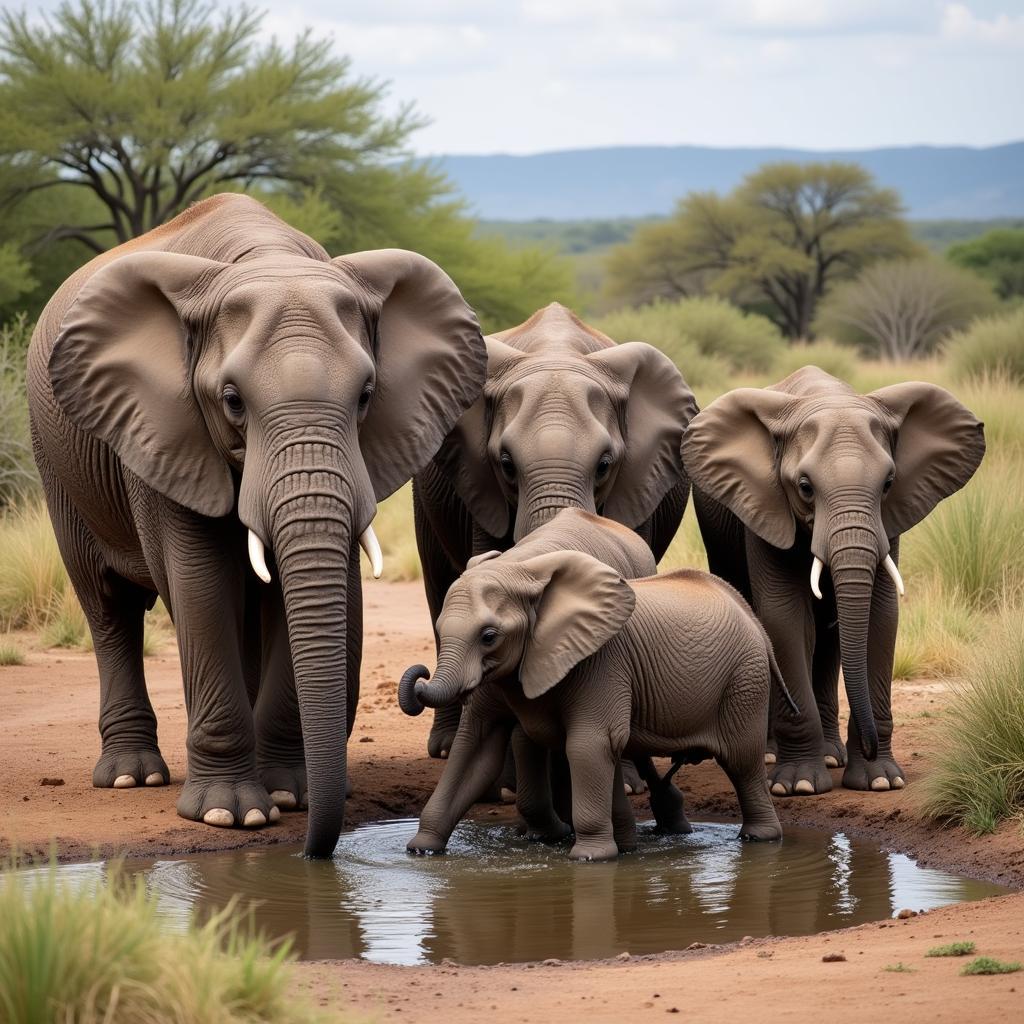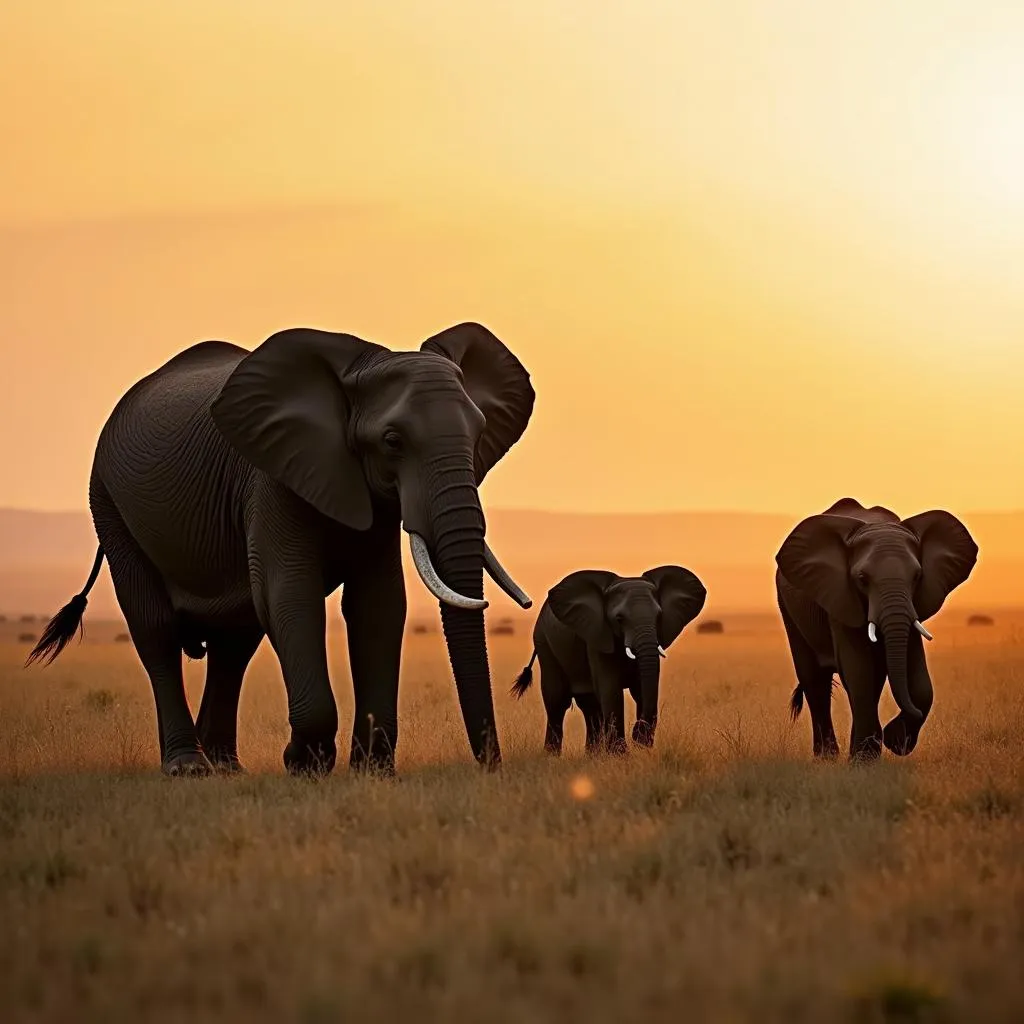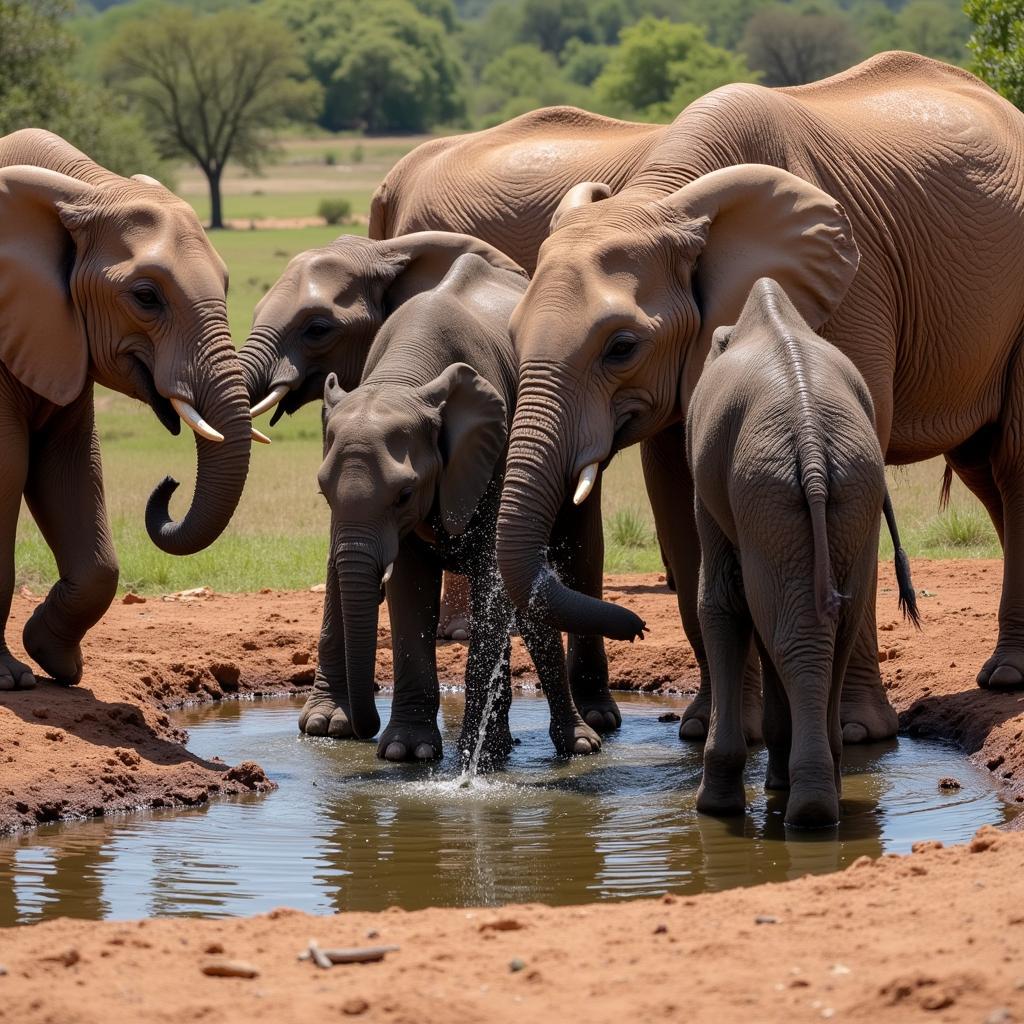What Do African Elephants Eat? Unveiling the Diet of Giants
African elephants, the largest land mammals on Earth, are renowned for their immense size, intelligence, and complex social structures. A crucial aspect of their lives revolves around their diet. What do these gentle giants consume to sustain their massive bodies? Let’s delve into the fascinating world of the African elephant’s eating habits.
The Vegetarian Giants: Exploring the African Elephant’s Plant-Based Diet
African elephants are herbivores, meaning their diet consists entirely of plants. They are incredibly selective eaters, displaying preferences for specific types of vegetation depending on the season and availability.
A Diverse Palate: The Range of Plants Consumed
From grasses and leaves to fruits and bark, African elephants consume a wide variety of plant matter. Their diet includes:
- Grasses: During the wet season, when grasses are abundant, they form a significant portion of the elephant’s diet.
- Leaves: Elephants use their dexterous trunks to strip leaves from branches and pull down entire branches to reach the tender foliage.
- Fruits: Figs, mangoes, and berries are among the fruits relished by elephants, especially during the dry season when they are readily available.
- Bark and Roots: Elephants use their tusks to strip bark from trees and dig for roots, which provide essential nutrients and moisture.
How Much Do African Elephants Eat? A Look at Their Voracious Appetites
To maintain their enormous size, African elephants consume staggering amounts of food. On average, an adult elephant can consume up to 300 pounds of vegetation in a single day. That’s equivalent to the weight of a small refrigerator!
 African Elephant Grazing on the Savannah
African Elephant Grazing on the Savannah
The Importance of Water: Quenching a Giant’s Thirst
Along with their food intake, African elephants require significant amounts of water. They can drink up to 50 gallons of water per day, especially during the dry season when water sources become scarce.
“Water is crucial for an elephant’s survival, not just for hydration but also for regulating body temperature and aiding digestion,” explains Dr. Abena Osei, a wildlife veterinarian with extensive experience in African elephant conservation.
The Impact of Diet on Elephant Behavior and Ecology
An elephant’s diet has a profound influence on its behavior and the ecosystems it inhabits.
- Migration Patterns: Elephants undertake long migrations in search of food and water, shaping the landscape and influencing the distribution of plant species.
- Seed Dispersal: As elephants consume fruits and seeds, they play a vital role in seed dispersal, contributing to the regeneration of forests and grasslands.
 African Elephant Family at a Waterhole
African Elephant Family at a Waterhole
FAQs: Unraveling the Mysteries of the African Elephant’s Diet
Q: What is the favorite food of an African elephant?
A: While elephants have diverse palates, they often show a preference for fruits, especially during the dry season when they are readily available.
Q: How do elephants find enough food in the wild?
A: Elephants have an exceptional sense of smell and memory, allowing them to locate food sources over long distances. They also communicate with each other, sharing information about food availability.
Need More Information?
For further insights into the fascinating world of African elephants, explore our articles on:
- African elephant what do they eat
- African female elephant front
- African elephant reason of there migration
- African elephant eat per day
- African elephant kingdom classification
Contact Us
For any inquiries or assistance, please contact us:
Phone: +255768904061
Email: kaka.mag@gmail.com
Address: Mbarali DC Mawindi, Kangaga, Tanzania
Our dedicated customer support team is available 24/7 to assist you.



